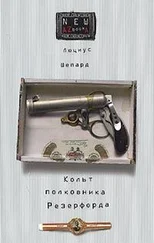But the dream was not an important terror, and he assigned it no significance. The land was far more terrifying. Pine-forested ridges that stood out against the sky like fringes of electrified hair; little trails winding off into thickets and petering out, as if what they led to had been magicked away; gray rock faces along which they were forced to walk, hopelessly exposed to ambush. There were innumerable booby traps set by the guerrillas, and they lost several men to rockfalls. It was the emptiest place of Dantzler’s experience. No people, no animals, just a few hawks circling the solitudes between the ridges. Once in a while they found tunnels, and these they blew with the new gas grenades; the gas ignited the rich concentrations of hydrocarbons and sent flame sweeping through the entire system. DT would praise whoever had discovered the tunnel and would estimate in a loud voice how many beaners they had “refried.” But Dantzler knew they were traversing pure emptiness and burning empty holes. Days, under debilitating heat, they humped the mountains, traveling seven, eight, even ten klicks up trails so steep that frequently the feet of the guy ahead of you would be on a level with your face; nights, it was cold, the darkness absolute, the silence so profound that Dantzler imagined he could hear the great humming vibration of the earth. They might have been anywhere or nowhere. Their fear was nourished by the isolation, and the only remedy was “martial arts.”
Dantzler took to popping the pills without the excuse of combat. Moody cautioned him against abusing the drugs, citing rumors of bad side effects and DT’s madness; but even he was using them more and more often. During basic training, Dantzler’s D.I. had told the boots that the drugs were available only to the Special Forces, that their use was optional; but there had been too many instances of lackluster battlefield performance in the last war, and this was to prevent a reoccurrence.
“The chickenshit infantry should take ’em,” the D.I. had said. “You bastards are brave already. You’re born killers, right?”
“Right, sir!” they had shouted.
“What are you?”
“Born killers, sir!”
But Dantzler was not a born killer; he was not even clear as to how he had been drafted, less clear as to how he had been manipulated into the Special Forces, and he had learned that nothing was optional in Salvador, with the possible exception of life itself.
The platoon’s mission was reconnaissance and mop-up. Along with other Special Forces platoons, they were to secure Morazán prior to the invasion of Nicaragua; specifically, they were to proceed to the village of Tecolutla, where a Sandinista patrol had recently been spotted, and following that they were to join up with the First Infantry and take part in the offensive against Leon, a provincial capital just across the Nicaraguan border. As Dantzler and Moody walked together, they frequently talked about the offensive, how it would be good to get down into flat country; occasionally they talked about the possibility of reporting DT, and once, after he had led them on a forced night march, they toyed with the idea of killing him. But most often they discussed the ways of the Indians and the land, since this was what had caused them to become buddies.
Moody was slightly built, freckled, and red-haired; his eyes had the “thousand-yard stare” that came from too much war. Dantzler had seen winos with such vacant, lusterless stares. Moody’s father had been in ‘Nam, and Moody said it had been worse than Salvador because there had been no real commitment to win; but he thought Nicaragua and Guatemala might be the worst of all, especially if the Cubans sent in troops as they had threatened. He was adept at locating tunnels and detecting booby traps, and it was for this reason Dantzler had cultivated his friendship. Essentially a loner, Moody had resisted all advances until learning of Dantzler’s father; thereafter he had buddied up, eager to hear about the field notes, believing they might give him an edge.
“They think the land has animal traits,” said Dantzler one day as they climbed along a ridgetop. “Just like some kinds of fish look like plants or sea bottom, parts of the land look like plain ground, jungle… whatever. But when you enter them, you find you’ve entered the spirit world, the world of Sukias.”
“What’s Sukias?” asked Moody.
“Magicians.” A twig snapped behind Dantzler, and he spun around, twitching off the safety of his rifle. It was only Hodge—a lanky kid with the beginnings of a beer gut. He stared hollow-eyed at Dantzler and popped an ampule.
Moody made a noise of disbelief. “If they got magicians, why ain’t they winnin’? Why ain’t they zappin’ us off the cliffs?”
“It’s not their business,” said Dantzler. “They don’t believe in messing with worldly affairs unless it concerns them directly. Anyway, these places—the ones that look like normal land but aren’t—they’re called…” He drew a blank on the name. “Aya-something. I can’t remember. But they have different laws. They’re where your spirit goes to die after your body dies.”
“Don’t they got no Heaven?”
“Nope. It just takes longer for your spirit to die, and so it goes to one of these places that’s between everything and nothing.”
“Nothin’,” said Moody disconsolately, as if all his hopes for an afterlife had been dashed. “Don’t make no sense to have spirits and not have no Heaven.”
“Hey,” said Dantzler, tensing as wind rustled the pine boughs. “They’re just a bunch of damn primitives. You know what their sacred drink is? Hot chocolate! My old man was a guest at one of their funerals, and he said they carried cups of hot chocolate balanced on these little red towers and acted like drinking it was going to wake them to the secrets of the universe.” He laughed, and the laughter sounded tinny and psychotic to his own ears. “So you’re going to worry about fools who think hot chocolate’s holy water?”
“Maybe they just like it,” said Moody. “Maybe somebody dyin’ just give ’em an excuse to drink it.”
But Dantzler was no longer listening. A moment before, as they emerged from pine cover onto the highest point of the ridge, a stony scarp open to the winds and providing a view of rumpled mountains and valleys extending to the horizon, he had popped an ampule. He felt so strong, so full of righteous purpose and controlled fury, it seemed only the sky was around him, that he was still ascending, preparing to do battle with the gods themselves.
* * *
Tecolutla was a village of whitewashed stone tucked into a notch between two hills. From above, the houses—with their shadow-blackened windows and doorways—looked like an unlucky throw of dice. The streets ran uphill and down, diverging around boulders. Bougainvilleas and hibiscuses speckled the hillsides, and there were tilled fields on the gentler slopes. It was a sweet, peaceful place when they arrived, and after they had gone it was once again peaceful; but its sweetness had been permanently banished. The reports of Sandinistas had proved accurate, and though they were casualties left behind to recuperate, DT had decided their presence called for extreme measures. Fu gas, frag grenades, and such. He had fired an M-60 until the barrel melted down, and then had manned the flamethrower. Afterward, as they rested atop the next ridge, exhausted and begrimed, having radioed in a chopper for resupply, he could not get over how one of the houses he had torched had come to resemble a toasted marshmallow.
“Ain’t that how it was, man?” he asked, striding up and down the line. He did not care if they agreed about the house; it was a deeper question he was asking, one concerning the ethics of their actions.
Читать дальше






